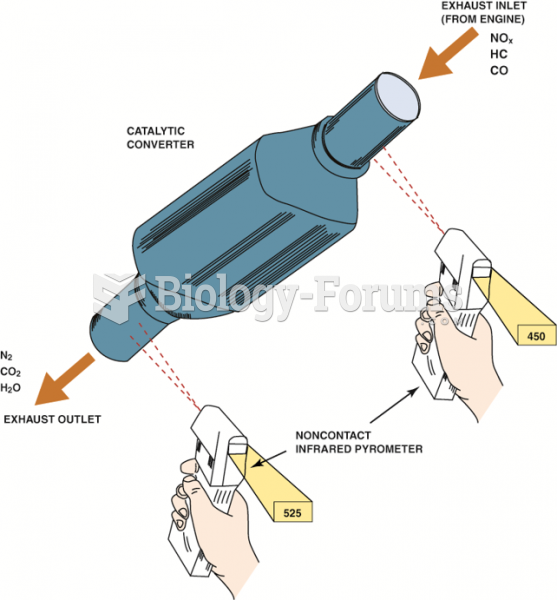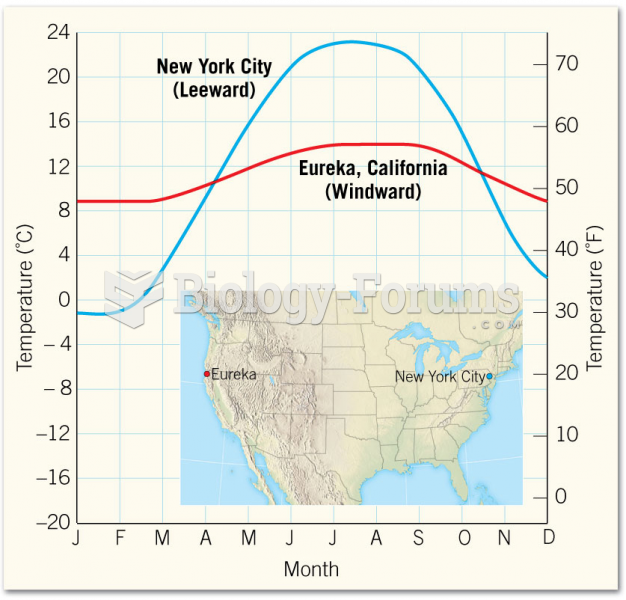|
|
|
In inpatient settings, adverse drug events account for an estimated one in three of all hospital adverse events. They affect approximately 2 million hospital stays every year, and prolong hospital stays by between one and five days.
Egg cells are about the size of a grain of sand. They are formed inside of a female's ovaries before she is even born.
Autoimmune diseases occur when the immune system destroys its own healthy tissues. When this occurs, white blood cells cannot distinguish between pathogens and normal cells.
Every 10 seconds, a person in the United States goes to the emergency room complaining of head pain. About 1.2 million visits are for acute migraine attacks.
Certain rare plants containing cyanide include apricot pits and a type of potato called cassava. Fortunately, only chronic or massive ingestion of any of these plants can lead to serious poisoning.
 Large size can provide a refuge from predators. While young African elephants may be vulnerable to p
Large size can provide a refuge from predators. While young African elephants may be vulnerable to p
 Eleanor Roosevelt dispenses soup to the needy. As a wealthy young socialite, she exhibited little ..
Eleanor Roosevelt dispenses soup to the needy. As a wealthy young socialite, she exhibited little ..




